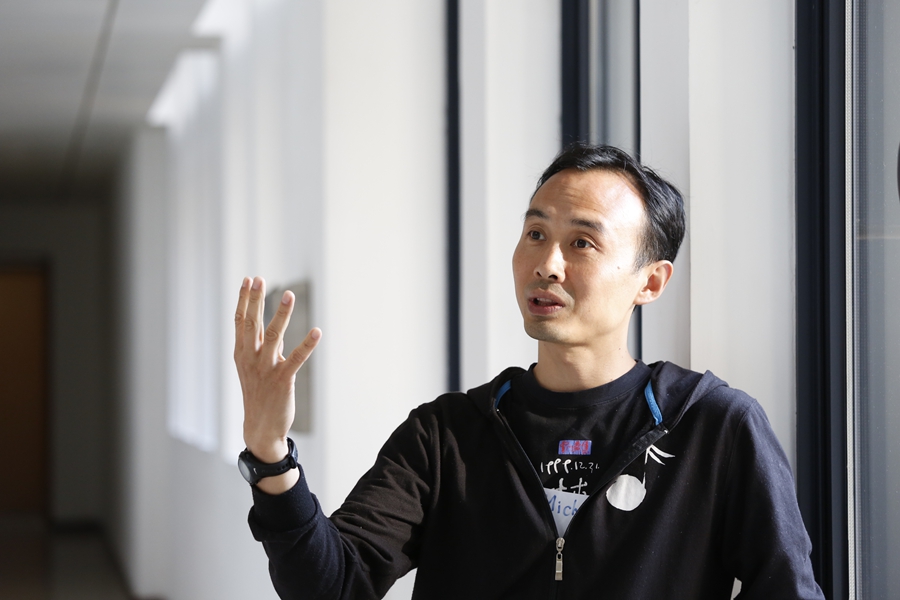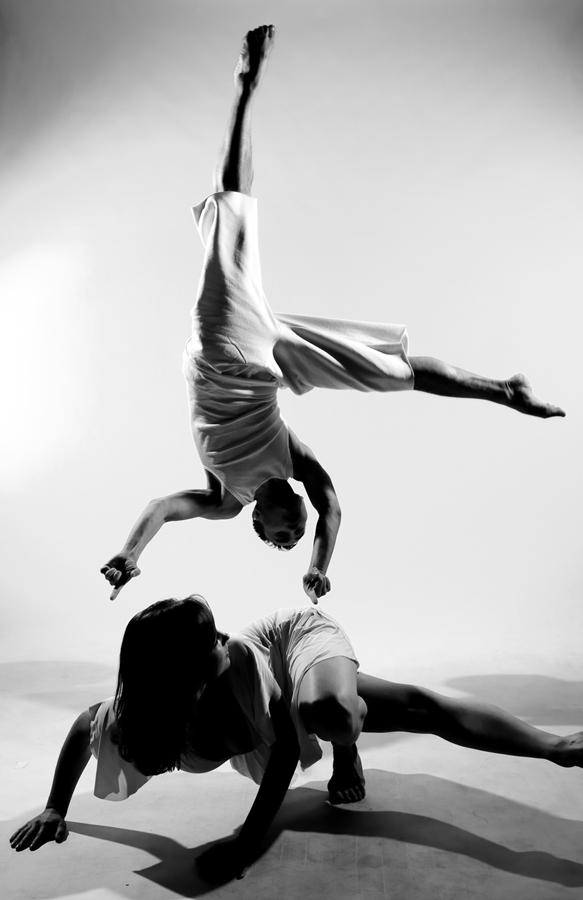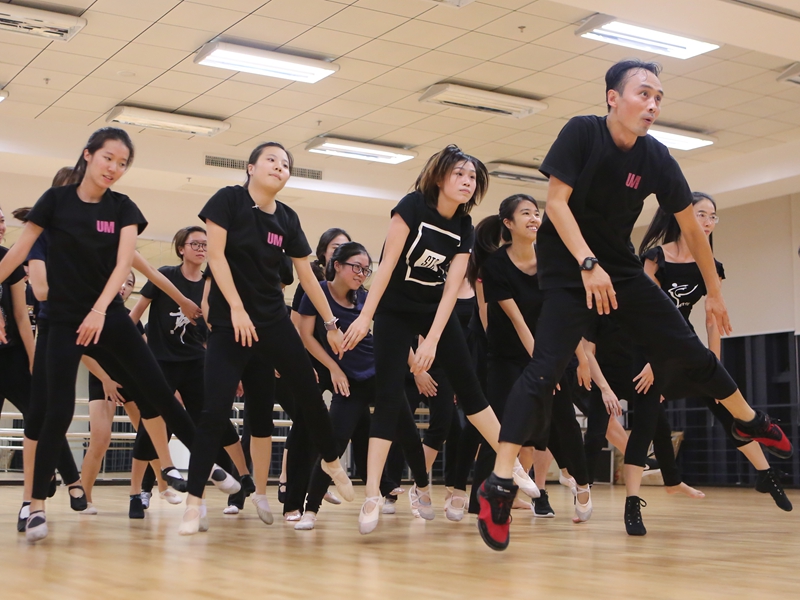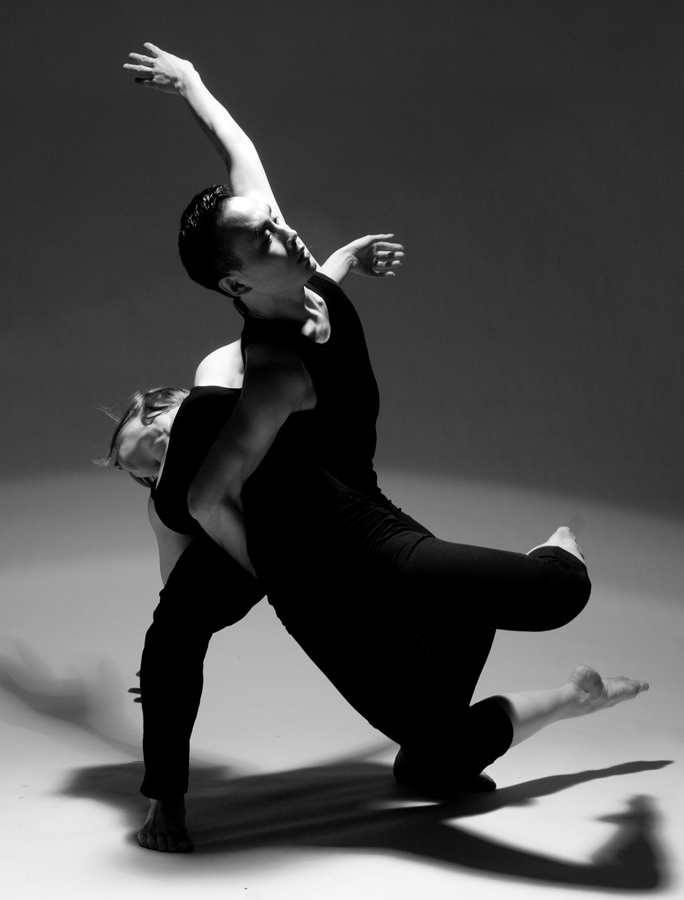Follow Your Passion
Li obtained a bachelor’s degree in dance from the Hong Kong Academy for Performing Arts (HKAPA) and a PhD degree from the University of Toronto’s Ontario Institute for Studies in Education. He has worked with many internationally renowned dance companies. When he was seven, his parents sent him to a dance school. At 25, he emigrated to Canada. With only one professional contemporary dance company in the whole Canada at the time, he almost considered giving up on dancing and switching to another profession, but in the end he decided to follow his passion. ‘Life is short. With the limited time and energy we have, we should focus on doing one thing really well, and then develop our lives from there,’ he says. ‘Just like the backbone provides structure and support for the body so it can achieve its full potential, so too our passion provides support for our lives so we can achieve
our full potential.’ Li says that male dancers are usually misunderstood by others, but as he grows older, he cares less about what others think.
Never Be Content with the Status Quo
As a dance enthusiast, Li started an academic career in Canada with an aim to influence more students through dance education. He has published many academic papers at international dance conferences, and has served as a dance curriculum consultant for the Ontario government. He has also served on different dance and arts councils and is the chair of the Education Network and Development (North America) World Dance Alliance.
With nearly 25 years of teaching experience under his belt, Li joined UM in 2014. He mainly teaches dancing and theatre. He believes that dancing can help students learn more about themselves. Therefore, he tells his students to never be content with the status quo, and encourages them to do more and strive for better. Because of his belief in the need for constant improvement, Li finds it important to make his ‘boring’ theory class more interesting. ‘I always ask my students to bring three things when they come to my class: A Google account, a smart phone, and themselves,’ he says. ‘Technology will never replace teachers, but the definition of teacher will change.’ He explains that teachers who subscribe to the traditional ways of teaching will eventually be replaced. They will either give up on their own or be eliminated by society. Li believes that both faculty members and students should keep pace with the times and learn to think outside the box in order to stay competitive.
Encouraging Students to Step Off the Campus
To stimulate the students’ interest in learning, Li adopts various innovative teaching methods in the classroom, including flipped classroom, student-centered teaching, outcome based education, and exploratory project-based learning, in combination with the latest technology, such as augmented reality, artificial intelligence, and ZOOM. In addition, he encourages his students to step off the campus and record themselves doing dance movements at the various World Heritage sites in Macao. He says the works produced by the students through this process have always surprised him.
Earlier this year, Li received the Silver Award at the International Outstanding e-Learning Awards for his outstanding teaching methods. The added bonus for him as an award recipient was the opportunity to have an hour-long conversation with the Gold Award recipient, Prof Malik Hussain from Harvard University’s Graduate School of Education. During the meeting, Prof Hussain said: ‘Why did Kodak and Motorola disappear from the market? That’s because technological advancements have brought irreversible changes to our society. Online education has already made some teaching positions redundant. Nowadays teachers simply cannot avoid using technology in the classroom. Visionary educators should help prepare students for, or better yet, create, jobs that do not yet exist.’ Prof Hussain studied with the same teacher as US President Barack Obama. His insights into the relationship between technology and education further increased Li’s confidence to use innovative teaching methods in the classroom.
Passing Down Dance Techniques
Despite his heavy workload, Li is always generous with his time to teach young people. Every week, he uses his own spare time to give dancing instruction to the UM Dance Troupe. Ivy Leung, captain of the dance troupe and a fourth-year student of pre-primary education from the FED, describes Li as very approachable. ‘Prof Li does not simply require students to practice more; he also gives them enough room to explore on their own,’ says Leung. Li hopes that his methods will help the students discover their potential and learn more about themselves, so that they can do their best on the stage. Earlier, Li choreographed a dance titled A Slice of Spring to show the beautiful scenery of the UM campus. The dance was performed at various locations on campus. A shorter version of the dance was later selected as part of the Macau International Youth Dance Festival.
Li says he will continue to use technologies in his teaching. ‘You either keep pace with the times or get left behind,’ says Li. ‘More importantly, I hope students will make good use of what they learn in class, because chance favours only the prepared mind.’





